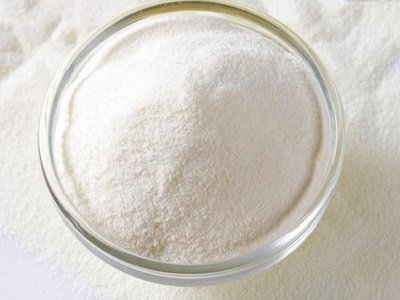Basic Chemicals: The Foundation of Modern Industry
2025-04-14
In the vast world of industrial manufacturing, basic chemicals play an essential role. These substances are the building blocks for a multitude of products, from everyday household goods to advanced technological solutions. Whether it’s the food we consume, the medications we take, or the materials used in construction, basic chemicals are integral to the functioning of modern life.
What Are Basic Chemicals?
Basic chemicals, also known as industrial chemicals or bulk chemicals, are raw materials used in a wide range of industries to create more complex substances. These chemicals are typically produced in large quantities and serve as essential inputs in the production of various goods and products. Basic chemicals can be organic or inorganic, and they come from a variety of sources, including natural resources and synthetic processes.
Some common examples of basic chemicals include:
- Sulfuric Acid: Used in manufacturing fertilizers, cleaning products, and in petroleum refining.
- Sodium Hydroxide: Commonly used in soap and detergent manufacturing, as well as in the paper and textiles industries.
- Ethylene: A key building block in the production of plastics and other chemicals.
- Ammonia: Essential in the production of fertilizers, cleaning agents, and industrial chemicals.
- Hydrochloric Acid: Used in metal cleaning, food processing, and the production of other chemicals.
These chemicals are not just important in large-scale manufacturing but also have a significant impact on the global economy, as they are involved in nearly every industrial process.
The Role of Basic Chemicals in Modern Industry
Basic chemicals are at the heart of nearly every manufacturing sector. They are used in everything from agriculture to electronics, textiles, and even energy production. Here’s a closer look at some key industries that rely heavily on basic chemicals:
1. Agriculture
Fertilizers, pesticides, and herbicides are crucial to modern farming practices. Many of these products are derived from basic chemicals such as ammonia and sulfuric acid. Ammonia, for instance, is a key ingredient in nitrogen-based fertilizers that help crops grow more efficiently. Without these chemicals, global food production would struggle to meet the demands of a growing population.
2. Pharmaceuticals
The pharmaceutical industry depends on a wide variety of chemicals to manufacture medicines and medical supplies. Basic chemicals are often the starting point for synthesizing more complex compounds. For example, the production of antibiotics, vaccines, and pain relievers all begins with basic chemicals that provide the necessary chemical reactions to produce the active ingredients in medicines.
3. Energy Production
Basic chemicals also play a significant role in the energy sector. For example, sulfuric acid is used in the production of batteries, including those used in renewable energy systems like solar power. Additionally, many of the chemicals involved in refining crude oil, such as hydrochloric acid and caustic soda, are vital for obtaining high-quality fuels.
4. Manufacturing and Materials
In the manufacturing industry, basic chemicals are used to produce a wide range of materials, from plastics to metals. Ethylene, a commonly used basic chemical, is crucial in the production of polyethylene, one of the most widely used plastics in the world. Likewise, sodium hydroxide is essential in the production of aluminum and other metals, making it indispensable in construction and electronics.
5. Household Products
From cleaning agents to cosmetics and even food products, basic chemicals are found in many household items. For example, sodium bicarbonate (baking soda) is used as a leavening agent in baking, while sodium hydroxide is found in products like drain cleaners and soaps. The widespread use of these chemicals in daily life highlights their importance and versatility.
The Environmental Impact of Basic Chemicals
While basic chemicals are essential to modern industry, their production and use can have environmental consequences. Many basic chemicals, such as sulfuric acid and ammonia, can be hazardous to the environment if not handled properly. Industrial waste and emissions from chemical production can lead to air and water pollution, which is why regulations and safety measures are critical to minimize their environmental impact.
In recent years, there has been a growing trend toward developing more sustainable chemical production processes. Innovations in green chemistry aim to reduce the environmental footprint of basic chemical production by using renewable resources, recycling waste products, and reducing harmful emissions. For example, bio-based chemicals derived from plant materials are being developed as alternatives to petroleum-based chemicals, which could reduce the carbon footprint of many industries.
The Future of Basic Chemicals
The demand for basic chemicals is unlikely to diminish anytime soon. As the world continues to develop and industries evolve, the need for these essential substances will only increase. However, the future of basic chemicals lies in innovation and sustainability. Researchers and companies are focused on making chemical production more efficient, environmentally friendly, and safe.
Additionally, the rise of advanced technologies, such as artificial intelligence and biotechnology, may lead to new ways of producing and utilizing basic chemicals. These innovations could revolutionize industries, making chemical processes cleaner and more cost-effective.
Conclusion
Basic chemicals are the unsung heroes of modern life, enabling the production of everything from food to pharmaceuticals, energy, and materials. Their importance spans across multiple industries, and their role in the global economy cannot be overstated. As the demand for more sustainable practices grows, the chemical industry will continue to evolve, with a focus on reducing environmental impact while maintaining the crucial role these chemicals play in our daily lives.
As we move toward a more sustainable future, the development of greener alternatives and the innovation of chemical production methods will be key to ensuring that basic chemicals remain a vital part of modern industry without compromising the planet.



